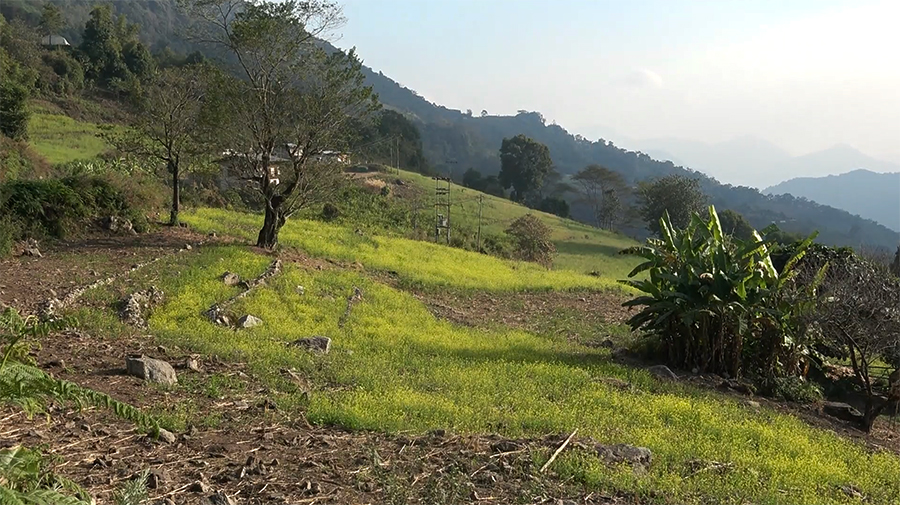 Many farmers in the country have stopped cultivating mustard due to the availability of imported oil and the labour-intensive extraction process. However, in Dagana’s Maenchhuna village, about 30 households still cultivate mustard as a source of income. The lack of an oil extraction machine has made processing mustard into oil challenging.
Many farmers in the country have stopped cultivating mustard due to the availability of imported oil and the labour-intensive extraction process. However, in Dagana’s Maenchhuna village, about 30 households still cultivate mustard as a source of income. The lack of an oil extraction machine has made processing mustard into oil challenging.
 Most farmers in Maenchhuna village grow mustard, with plots varying in size from small to large. They begin planting in August and harvest the crop in January.
Most farmers in Maenchhuna village grow mustard, with plots varying in size from small to large. They begin planting in August and harvest the crop in January.
In the past, they extracted oil from mustard using traditional methods but abandoned the practice due to its labour-intensive nature.
Without an oil extraction machine, farmers now sell their mustard to local dealers who take it to Phuentshogling and Paro for extraction.
Farmers say that having an oil extraction machine would reduce reliance on imported cooking oil and make them self-sufficient.
“We have to sell all our mustard and buy cooking oil from shops in the absence of an oil extraction machine. It would be helpful if the government could provide one,” said Choden, a farmer.
“We need an oil extraction machine. Right now, we rely on imported oil and some of my friends say consuming too much of it can cause health issues like leg pain,” said Kuchum, another farmer.
“I grow mustard mainly to extract oil for self-consumption because depending only on imported oil is not a good solution,” said Yangki, also a farmer.
Meanwhile, the Drujeygang Gewog agriculture extension supervisor said farmers have not formally requested an oil extraction machine.
While farmers wait for an oil extraction machine, they will have to continue selling their mustard and relying on imported cooking oil.
Pema Tshewang, Dagana
Edited by Sonam Pem








